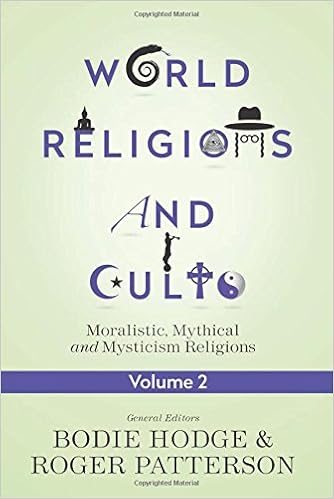Unitarianism
Definition
Unitarianism refers to any philosophy which claims that divine sovereignty is not shared in any way.
Keywords: Unitarianism, Philosophy, God, Irrational, False, Contradictory, Reality, Deductive, Universe, Time, Argument From Reason.
Veracity
Unitarian claims are false .
Proof
Simplified
Any worldview that denies an omniscient, sovereign, rational author of time and the universe allows for no possible rational justification for the assumption that reality is non-contradictory.
Premise 1: A rational, sovereign, omniscient author of time and the universe will, of necessity, eternally conceive of himself as his own ultimate reason for everything that occurs. The conception of himself will eternally be the exact representation of himself, sharing divine sovereignty, since this conception is the reason for everything that occurs.
Premise 2: Under unitarianism, divine sovereignty is not shared.
Conclusion: Therefore, under unitarianism, either there is no author of time and the universe; or else the author of time and the universe is not omniscient; or else the author of time and the universe is not sovereign; or else the author of time and the universe is not rational.
Humans assume that reality is non-contradictory. Under unitarianism, there can ultimately be no rational authority behind this assumption, making it an irrational assumption. This makes unitarianism deductively false.
In depth
Any worldview that denies an omniscient, sovereign, rational author of time and the universe allows for no possible rational justification for the assumption that reality is non-contradictory.
A. All things formed must be formed by reasoning causes for our beliefs about them to be rational.
Premise 1: Any belief formed by non-reasoning causes is believed without reason.
Premise 2: A belief about anything is caused in part by the existence of that thing.
Conclusion: Therefore, any belief about anything is believed without reason unless the existence of that thing is not formed by non-reasoning causes.
B. All things formed must ultimately be formed by only one reasoning cause for our beliefs about them to be rational.
Premise 1: In the convergence of multiple causes, the result is at least partly the result of the convergence of causes.
Premise 2: The convergence of multiple causes is not itself reasoning.
Conclusion: Therefore, any belief formed by the convergence of multiple ultimate causes is believed without reason.
C. God conceives of himself as his own reason.
Premise 1: If all things formed are formed by one reasoning cause (from B above), it itself is the only reason for them.
Premise 2: Anything that reasons, and has only one reason, conceives of that reason.
Conclusion: Therefore, if all things formed are formed by one reasoning cause, it conceives of it itself as the reason for them.
D. Divinity is shared in any rational god.
Premise 1: With a rational god, god's reason is god himself.
Premise 2: There is a distinction between the concept and the thing conceived of.
Conclusion: Therefore, with a rational god, divinity is shared between the concept and the thing conceived of.
Humans assume that reality is non-contradictory. Under unitarianism, there can ultimately be no rational authority behind this assumption, making it an irrational assumption.
This Argument from Reason demonstrates that unitarianism is deductively false.

Gilbert Guttlebocker, Defender of Dragons
Riveting, yet absurd; romantic, yet innocent; Gilbert Guttlebocker, Defender of Dragons is a little Roald Dahl, a little Harry Potter, and a little Chronicles of Narnia, all rolled into one. Timothy McCabe collaborates with the great Benedict Ballyhoot to bring you the novel of the century!

In Printed Form
Along with numerous other authors including Don Landis, Bodie Hodge and Roger Patterson, Timothy McCabe contributes analyses of various world religions and cults in this volume from Master Books.
Other Writings
"Your previous answer states that you agree that homosexual people should be executed. This conflicts with the commandment "Thou shalt not kill". Justify this please."
Actually, my answer was that those who disobey God deserve to be executed, including myself. So, rephrasing your question slightly, how is it then that anyone "should" be executed when no one is allowed to kill? The short answer is that the prohibition against killing humans is a general rule or principle that holds for all humans and all animals (Genesis 9:5-6) unless God specifically commands otherwise.
Continue reading...
"Why should one believe in the validity of the Bible?"
Much could be said about manuscript evidence (demonstrating conclusively that the Bible has been reliably passed down to us), archaeological evidence (demonstrating that the locations, lifestyles, and many of the people in the Bible are genuine), eyewitness testimonies and changed lives (demonstrating the genuine sincerity of the authors, such as the apostles Peter and Paul, who were executed for their claims), and fulfilled prophecies (such as Daniel 9:24-25, Leviticus 26:44, Jeremiah...
Continue reading...
"Re: your answer to my question "Should homosexuals be executed?". There is a clear conflict with Matt 7:1 and Rom 12:19. Discuss."
Matthew 7:1-5 "Do not judge so that you will not be judged. For in the way you judge, you will be judged; and by your standard of measure, it will be measured to you. Why do you look at the speck that is in your brother's eye, but do not notice the log that is in your own eye? Or how can you say to your brother, 'Let me take the speck out of your eye,' and behold, the log is in your own eye?
Continue reading...